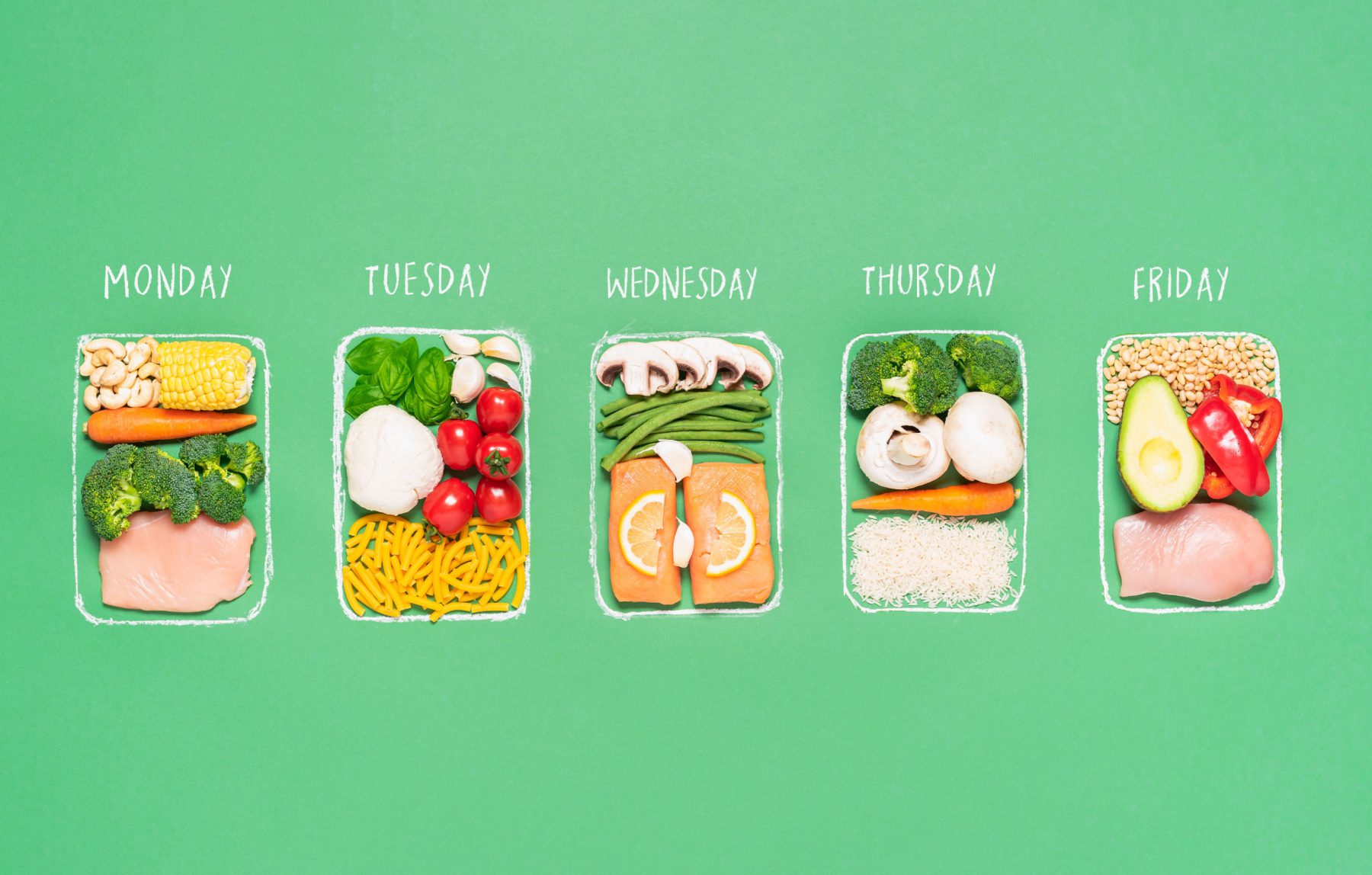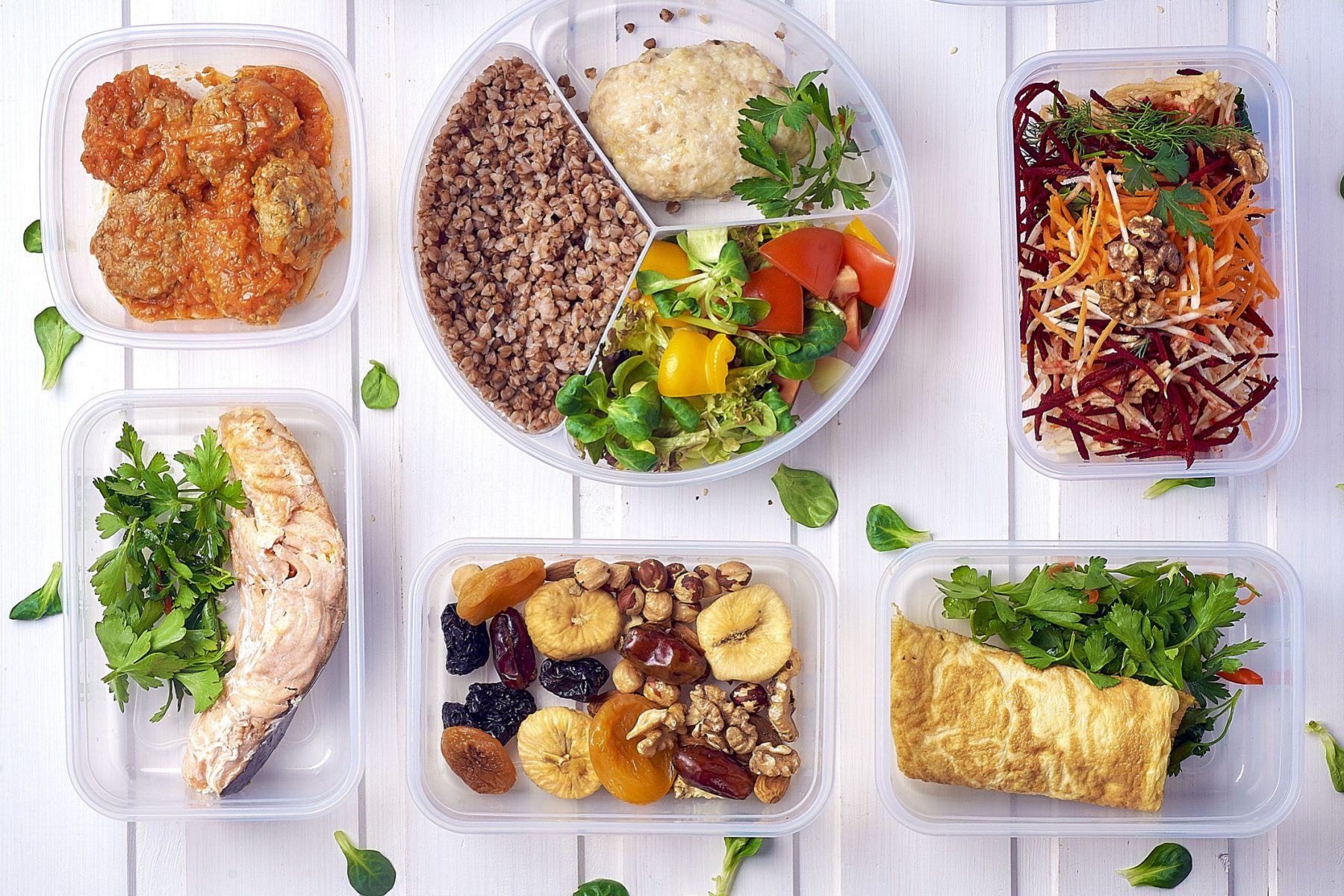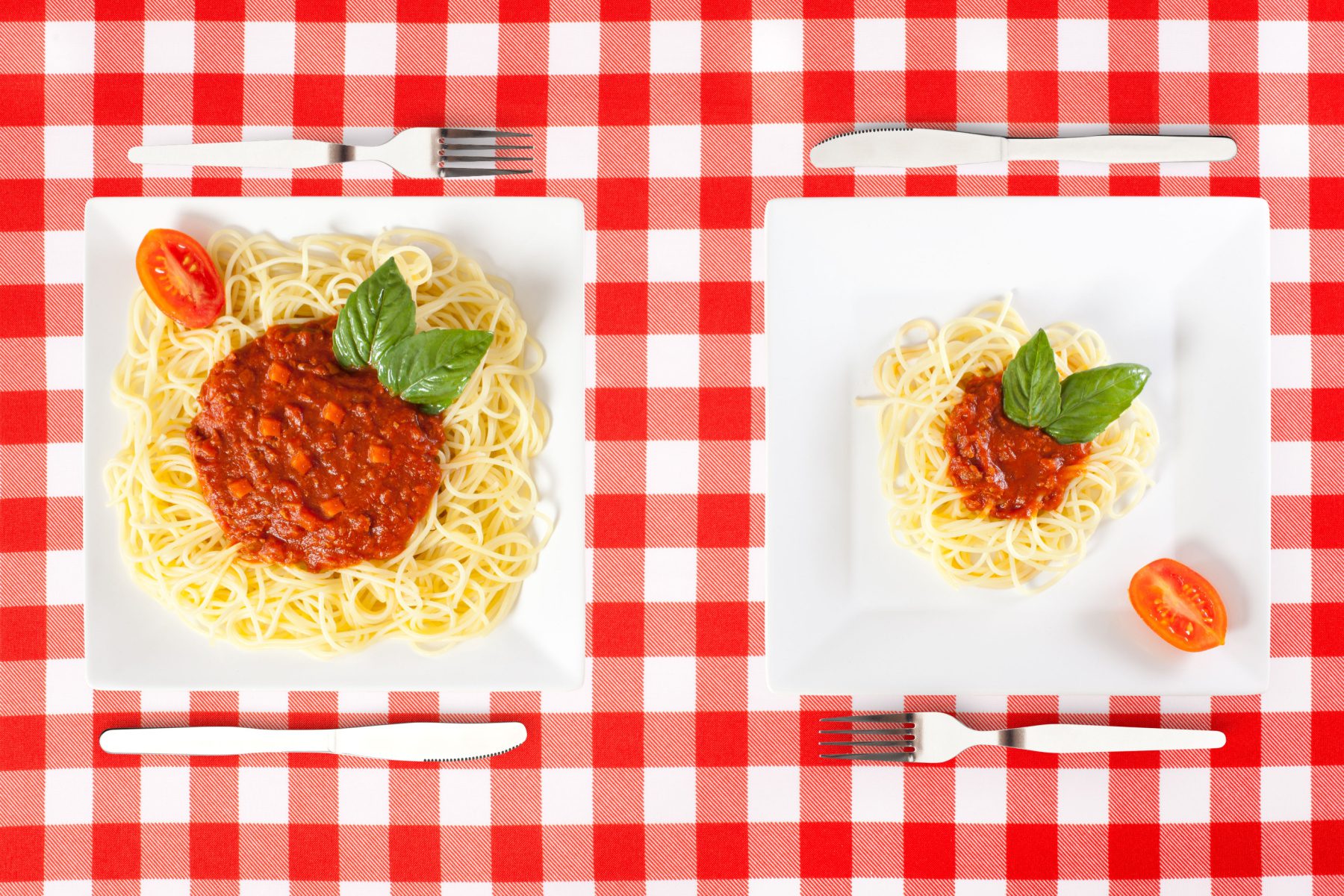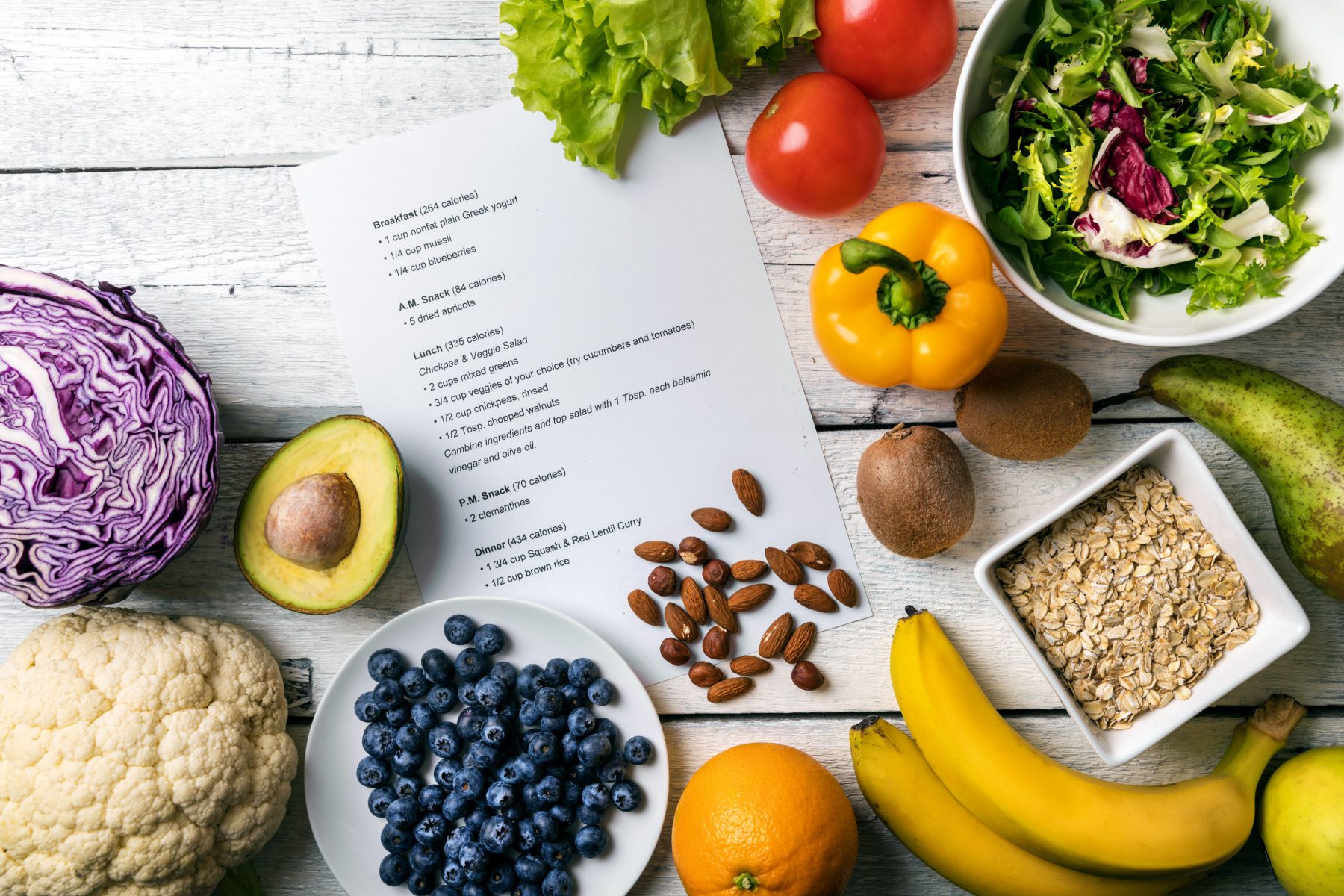Weekly meal plans can be a highly effective tool for helping you lose weight or fat, fast. At Equalution, our nutritionist-designed healthy meal plans are designed to support you in achieving your goals as effectively and efficiently as possible, while maintaining variety and enjoyment in your food. Our weight loss meal plans aim to facilitate sustainable, lasting fat loss, without the need for restricting or depriving yourself of the foods you love, or the things in life which bring you joy – like eating out with friends or loved ones! So let’s break down how to lose weight fast on a meal plan, while still enjoying yourself along the way.

Table of Contents
1. Stick to your meal plan as closely as possible.
Many people fall into the trap of sticking to their meal plan “perfectly” during the week, and eating really healthily, only to blow out each weekend and completely abandon their meal plan and hard work. This makes it much more difficult to achieve weight loss goals, as you’re likely consuming far more calories than your meal plan has factored in. If your goal is, let’s say, 1600 calories per day, and you stick to this during the week but then find yourself consuming around 2500 on weekends, that’s more than a full day’s worth of additional calories being consumed across the weekend alone. This can really hinder the speed and progress of your fat loss. Consistency is key when it comes to achieving fat loss fast on a meal plan, so stick to it as closely as possible – regardless of what day of the week it is!

2. Allow for some flexibility.
Having said that, it’s important to allow for some flexibility in your meal plan – just keep in mind you want to stick as close to the calorie targets outlined in your plan as possible while you’re embracing flexibility. So for you, this might look like eating out one or two evenings a week with friends – which is absolutely fine, and something to be encouraged! We don’t want you feeling restricted from doing the things you love in any way. Just be sure that, when you do stray from your meal plan, you’re trying to choose options which resemble similar calorie contents and macro breakdowns to those included in your plan. For example, if your meal plan includes a steak with vegetables for dinner on Saturday, but you choose to go out with friends instead, maybe you can find something on the menu which has a similar nutritional profile – for example, a dish consisting of a lean protein with grilled or steamed veggies or a side salad. This way, you’re being flexible but still abiding by the main focus of the meal plan and your calorie targets.

3. Include treats and foods you love regularly.
Similarly, including treats or foods you love within your meal plan on a regular basis is important. You should never feel restricted or deprived from any foods, as this often leads to bingeing on them later on, owing to the elevated status they obtain once you “forbid” them from your diet. Cutting out the foods you love is unsustainable and unenjoyable, and that’s not the way to go about achieving weight loss fast, as it often has the opposite impact. The psychological and physiological mechanisms in your body will cause you to crave the foods you’re attempting to cut out from your diet, until the point you simply can’t resist eating (and often bingeing) them. While you may drop weight quickly following a restrictive approach, you’re likely to put the weight right back on again quickly once the intense restriction becomes too much for you to resist the temptation of your “forbidden” foods.

4. Prepare as many of your meals yourself as possible – in advance.
When you’re following a meal plan, try to cook and prepare as many of the meals yourself as possible. Rather than outsource the cooking process, or buying similar meals from supermarkets or prepared meal services, when you cook yourself you know exactly what’s going into each of your meals and snacks. This gives you complete control, meaning you can rest assured each meal is within your calorie targets, and adheres exactly to your meal plan. It’s a recipe for success (pardon the pun!).
Preparing meals in advance can also help reduce the chances of straying from your meal plan. Because life happens – sometimes we get busy, sometimes we have a craving for fast food that feels impossible to resist, sometimes we can’t be bothered to cook whatever is on our meal plan. But if you’ve done the hard work in advance and prepped ingredients or even full meals ahead of your busy week, you’re much less likely to give into temptation, making it easier to stick to your meal plan and lose the weight faster.

5. Make sure you’re eating enough to fuel your body and keep you satiated.
When you’re following a meal plan, you still want to make sure you’re eating enough to fuel your body and support your health and performance. If you find yourself constantly starving, this is a good indication that the meal plan you’ve set out to follow isn’t meeting your nutrient or energy needs. Try including an extra protein-rich snack, or bulking up your meals with some extra fibre-rich veggies to help you feel fuller for longer, and support your body’s optimal function. Eating inadequate amounts of food won’t help you lose weight faster – in fact, it will trick your body into thinking it can’t rely on an adequate and consistent supply of food coming in, meaning it’s likely to enter “survival” mode and start storing fat in preparation for the event it’s underfed. So while you want to be in a slight calorie deficit if you’re aiming for weight loss, this deficit should never be so big that it leaves you feeling super hungry, undernourished or underfuelled.

6. Follow the recommended portion sizes in the meal plan.
Even while following a meal plan, many people continue to exceed their calorie targets by going overboard when it comes to portion sizes. You may be sticking to the meals within your plan, but if you’re eating a double serving at each meal, it’s going to be much harder to achieve your fat loss goals quickly. Try to stick as closely as you can to the portioning set out for you in your meal plan, in order to achieve your fat loss goals fast.

7. Don’t rush it. Sustainable weight loss occurs over time.
While you may want to see results fast, sustainable weight loss takes time, and should be slow and steady. In order to maintain the fat loss you’re working so hard to achieve, you need to make small lifestyle changes that you can maintain over the long-term – otherwise, as soon as you stop sticking to a strict meal plan, you’ll likely regain the weight pretty quickly. Instead of rushing to achieve a certain number on the scales, approach weight loss from a sustainable, long-term mindset – slow and steady wins the race after all! So be kind to yourself, make sure you’re continuing to look after your body and mind in the process, and make smaller tweaks you can continue implementing day-to-day if lasting fat loss is your end goal.

